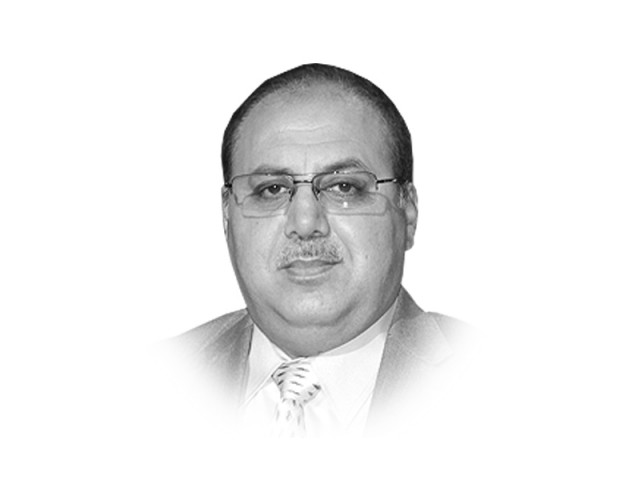Why Pakistan is losing the war against polio
Pakistan will have to do better in the critical areas of implementation and management of its vaccination programme.

The writer is Senior Editor at
www.voicesofny.org, an American online publication. He tweets @JehangirKhattak
Over 90 per cent of the polio cases being reported are from four major transmission zones in Fata, Khyber-Pakhtunkhwa (K-P), Balochistan, central Punjab and Sindh. Pakistan declared a national health emergency in January 2011 and unveiled the National Emergency Action Plan 2011 for Polio Eradication with a singular goal of interrupting transmission of the disease by the year’s end. Barring limited progress, the initiative failed.
The true extent of Pakistan’s polio problem is difficult to measure. In the absence of a credible monitoring and reporting mechanism, many cases may be going unreported. Available data suggests a strong connection between peace and polio. Its incidence is low in the relatively peaceful areas in Punjab and Sindh and high in restive K-P, Fata and Balochistan. Of the 198 cases recorded in 2011, a staggering 188 were from violence-plagued areas, including Balochistan (73), Fata (59), K-P (23) and Sindh (33). Similarly, 55 of the total 58 cases in 2012 were reported from Balochistan (four), Fata (20), K-P (27) and Sindh (four).
The biggest challenge in containing the poliovirus is being faced in K-P and Fata. The World Health Organisation says that children in North and South Waziristan agencies have not been immunised since July 2012. According to data provided by K-P’s Expanded Programme on Immunisation, just five cases were recorded in 2005. A spike in cases started emerging with the rise in violence in 2006. The trend continues to date.
The precarious security environment, lax oversight and ownership of the vaccination programme, and accountability are affecting vaccination coverage and effectiveness. Devolution of power under the Eighteenth Amendment, transferring health delivery systems to provinces, also contributed to inefficiencies in the vaccination delivery system. The provinces were least prepared for the job.
Propaganda against vaccination, threat to vaccinators’ lives and lack of motivation are making the campaign even murkier. Facing threats to their lives, lacking effective institutional support and low incentives, many vaccinators have lost enthusiasm to deliver. But few in the public health establishment have lost their sleep over Pakistan becoming one of the single most serious threats to global efforts for polio eradication. Also missing is the realisation that the situation may exacerbate after the US withdrawal from Afghanistan.
A study by the Centre for Strategic and International Studies, released in August 2012, concluded that sustainability of vaccination would be a challenge for Pakistan and Afghanistan. “Ongoing conflict is likely to remain a central obstacle to proper vaccination procedures, particularly in the light of withdrawal of US troops from Afghanistan in 2014 and the growing conflict within Pakistan. But sustainability is not only about effectively dealing with the conflict … even if vaccination teams are able to gain access to insecure areas, success is ultimately dependent on the quality of implementation.”
Improving the security environment thus may not be enough. Pakistan will have to do better in the critical areas of implementation and management of its vaccination programme. It will have to develop a credible and effective reporting mechanism for new cases, an efficient oversight system and create stakes for civil society in the immunisation effort.
Polio is as serious a threat to an entire generation of Pakistanis as terrorism. Its eradication is too serious a business to be left to an unaccountable vaccination delivery system. Civil society, which will elect a new parliament on May 11, should take the lead by making polio eradication part of the election debate. It makes sense to start an intense public debate on preventive health delivery systems, such as polio vaccination, when politicians are out to win the public trust and are purely in the listening mode. This is the first step towards better governance and polio eradication.
Published in The Express Tribune, April 12th, 2013.















COMMENTS
Comments are moderated and generally will be posted if they are on-topic and not abusive.
For more information, please see our Comments FAQ